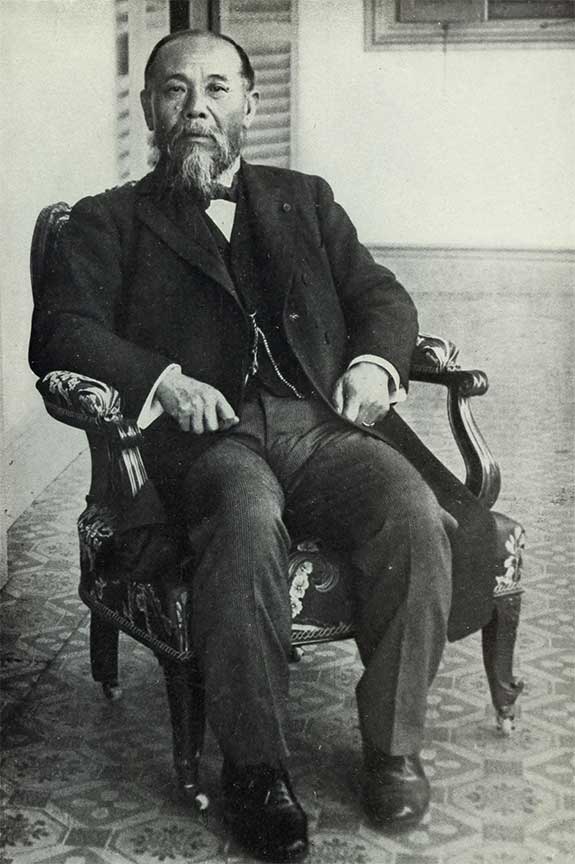1909 Prince Ito Assassinated
A Korean nationalist assassinated Hirobumi Ito on October 26th. Ito was considered the most important Japanese public figure in the late 19th century. He was considered the man most responsible for the modernization of Japan. The assassin was protesting the Japanese attempt to control Korea and the assassination gave the Japanese a convenient pretext for the outright annexation of the peninsula.
Count Hirobumi Ito (1841-1909) was one of the most influential figures in modern Japanese history. As one of the architects of the Meiji Restoration, Ito played a crucial role in transforming Japan into a modern, industrialized nation. He was instrumental in drafting the Meiji Constitution, establishing Japan's first constitutional government, and serving as the country's Prime Minister on four separate occasions.
In addition to his contributions to Japanese domestic politics, Ito was also deeply involved in Japan's foreign policy, particularly with respect to Korea. In the late 19th and early 20th centuries, Japan was seeking to expand its influence in East Asia, and Korea was a key target due to its strategic location and resources. Ito played a significant role in shaping Japanese policy towards Korea, negotiating treaties and working to strengthen Japan's control over the Korean Peninsula.
On October 26, 1909, Hirobumi Ito was assassinated at the Harbin Railway Station in Manchuria by An Jung-geun, a Korean nationalist and independence activist. An Jung-geun's motivations for assassinating Ito were rooted in his opposition to Japan's growing influence and control over Korea. He viewed Ito as a symbol of Japanese imperialism and held him responsible for the suffering of the Korean people under Japanese rule.
At the time of his assassination, Ito was serving as the Resident-General of Korea, a position that granted him significant authority over Korean affairs. His death not only shocked the Japanese political establishment but also had profound implications for Japanese-Korean relations, as it exposed the deep-seated resentment and resistance to Japanese rule among the Korean population. In the aftermath of Ito's death, the Japanese government implemented a series of punitive measures against Korea, including the dissolution of the Korean army and the imposition of tighter controls over the Korean administration. These actions further fueled Korean resentment towards Japan and intensified the desire for independence among Korean nationalists.
The assassination also marked a turning point in Japan's policy towards Korea. Recognizing that its efforts to win the "hearts and minds" of the Korean people had failed, the Japanese government shifted its focus towards consolidating its control over the peninsula through more direct and forceful means. In 1910, just one year after Ito's assassination, Japan formally annexed Korea, beginning a period of colonial rule that would last until 1945.
The assassination of Hirobumi Ito had significant repercussions for Japanese domestic politics as well. Ito's death marked the end of an era in Japanese politics, as he was one of the last surviving leaders of the Meiji Restoration. His assassination also underscored the growing vulnerability of Japan's political elite, as it demonstrated that even the most powerful figures in Japanese politics were not immune to the consequences of their actions.
Ito's death left a void in Japanese politics, as there were few figures of his stature and experience to assume leadership roles.
 >
>